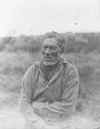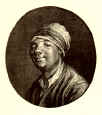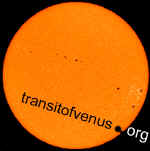While the expeditions spawned by transits of Venus are heralded as triumphs of science and the pursuit of discovery, the expeditions were not without their shortcomings. Opportunities for some cultures can have a negative impact on others. The items on this page are posted to initiate discussion about social issues related to the transit of Venus. We welcome your input.
 usno-macabre01412.jpg
usno-macabre01412.jpg
At first glance, this photograph from one of the USNO
expeditions shows what appears to be a
successful hunting party. At closer inspection, however, it appears armed
sailors are posing in front of a human body on the ground.
 ILN/Cairo2.jpg
ILN/Cairo2.jpg
A British expedition team ascends the heights near Cairo as laborers
struggle to move the gear uphill. The artist, however, depicts the local
people unfavorably as the foreign officer assesses the scene.
 usno-man0034.jpg
usno-man0034.jpg
Is this a resident of one of the destinations, likely Kergeulen
Island? What impact did the expedition team have on the local population?
http://sunearth.gsfc.nasa.gov/sunearthday/2004/vt_crosscultural_2004.htm
- Native American Connections
- Professional Biographies
- Activities
- Lakota Parallels
- Suggested Links
- Image Gallery
- ńCross Cultural Connectionsî
http://www.rsnz.govt.nz/news/venus/comp.php
The Royal Society New Zealand suggests these competition topics for engaging
discussion:
- scientific background to the Transit of Venus
- history and use of the Transit of Venus observations
- how Cook’s voyage increased understanding of world geography
- impact of Cook’s men in the Pacific
- impact of Maori/Polynesian on Cook’s men
- significance of Tupaia on Cook’s first voyage
- compare European cultural/political context with Tahitian or Maori at time of Cook’s voyage
- significance of the scientists on Cook’s voyages
- impact of the discoveries of Joseph Banks
- changes to New Zealand’s fauna and flora during and since Maori and /or Cook’s arrival
- challenges to surviving long ocean voyages
- compare navigation methods used by Pasifika/Europeans
- history of astronomy and our understanding of the solar system
- Maori or Polynesian knowledge and understanding of astronomy
- astronomy in NZ’s past and/or present
- modern astronomy and the cosmos
 http://www.ifa.hawaii.edu/users/steiger/post_cook.htm
http://www.ifa.hawaii.edu/users/steiger/post_cook.htm
The first record of scientific astronomical observations being made from Hawai`i
appears to be that of a British expedition on 8 December 1874. Captain G. L.
Tupman of the HBM Scout observed a transit of Venus. King David
Kalakaua, who reigned over the Kingdom of Hawai`i from 1874 to 189l, established
the first permanent observatory in Hawai`i, in 1883. In this illustration,
local people sit outside the fort erected around the observation site.
 Jean-Baptiste
Chappe d'Auteroche crossed frozen rivers by horse-drawn sled on his way to
observe the 1761 transit of Venus from Siberia. Within days of his
arrival, the ice dams on the rivers broke up and the adjoining lands
flooded. "The people of Tobolsk, driven by superstition and fear,
were convinced that Chappe was a magician, bent on bringing evil into their
midst" (Sellers, The Transit of Venus, The Quest to Find the True
Distance of the Sun, pg. 131).
Jean-Baptiste
Chappe d'Auteroche crossed frozen rivers by horse-drawn sled on his way to
observe the 1761 transit of Venus from Siberia. Within days of his
arrival, the ice dams on the rivers broke up and the adjoining lands
flooded. "The people of Tobolsk, driven by superstition and fear,
were convinced that Chappe was a magician, bent on bringing evil into their
midst" (Sellers, The Transit of Venus, The Quest to Find the True
Distance of the Sun, pg. 131).
From the Quotes page:
"But America! Venus! what riches dost thou squander on unworthy regions which attempt to repay such favours with gold, the paltry product of their mines. Let these barbarians keep their precious metals to themselves, the incentives to evil which we are content to do without. These rude people would indeed ask from us too much should they deprive us of all those celestial riches, the use of which they are not able to comprehend."
Jeremiah Horrocks"...the several Powers of Europe will again contend which of them shall be most instrumental in contributing to the solution of this grand problem. Posterity must reflect with infinite regret upon their negligence or remisssness, because the loss cannot be repaired by the united efforts of industry, genius or power."
Thomas Hornsby
jars-scopes.doc
The Transit of Venus After Baby Food Jars and Gun Scopes, an admonition
for astronomy educators in general and planetarians in particular to embrace and
advocate the 2004 transit of Venus as a global education opportunity; by Chuck
Bueter.
 lights.htm
lights.htm
Light pollution awareness and abatement are addressed from a local perspective
of northern Indiana.
